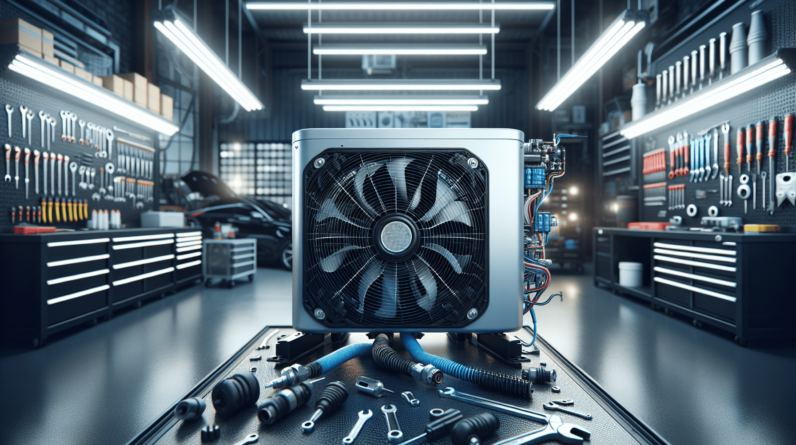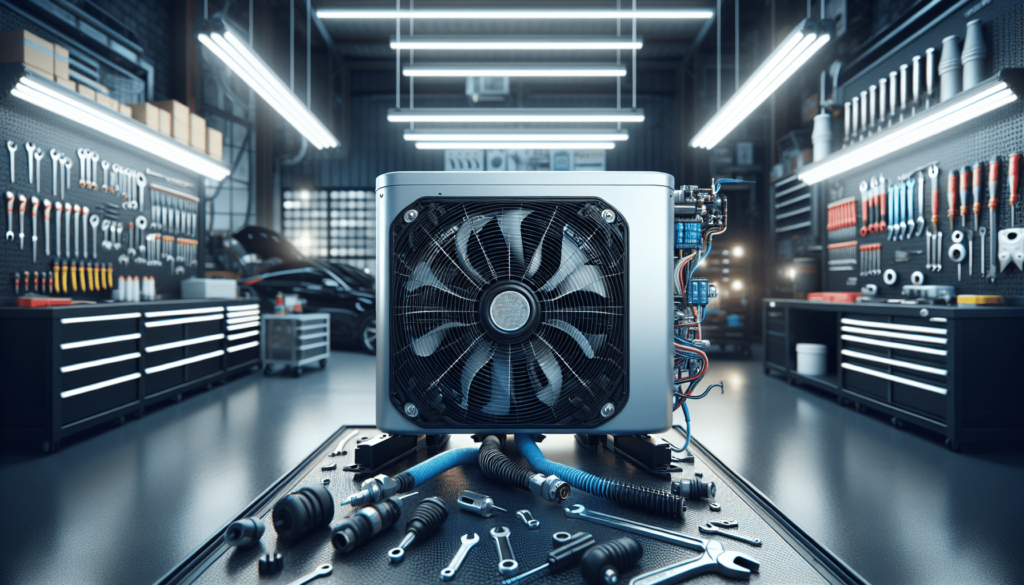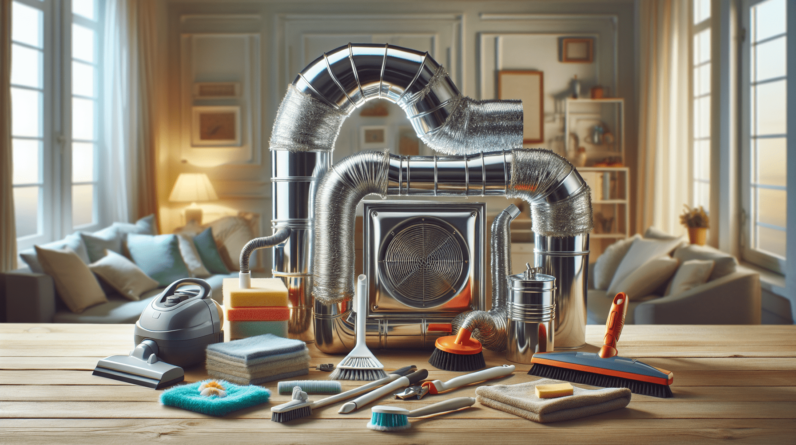
Have you ever found yourself sweating in your car during a hot day, wishing your air conditioner was working properly? It’s a frustrating experience that many face, especially when the temperatures rise. Understanding your car’s air conditioning system can make a world of difference when it comes to keeping your ride comfortable.

Understanding Your Car’s Air Conditioning System
The air conditioning system in your car is more than just a luxury feature; it’s a crucial part of your vehicle that ensures your comfort while driving. It involves several components working together to cool and dehumidify the air inside your car.
How the Air Conditioning System Works
To grasp how to maintain your air conditioning system, you first need to understand its components and how they function together.
- Compressor: This is the heart of your AC system. It compresses the refrigerant and circulates it through the system.
- Condenser: Located at the front of your car, it cools down the refrigerant so it can return to liquid form.
- Evaporator: This component absorbs heat from the cabin, making the air inside cooler.
- Receiver/Drier: This filters the refrigerant and removes moisture.
- Expansion Valve: It controls the flow of refrigerant into the evaporator.
These parts work in tandem to ensure the air conditioning system operates effectively, but sometimes, things can go wrong.
Common Air Conditioning Problems
Recognizing the signs of a faulty air conditioning system can help you address issues before they escalate into bigger problems.
Warm Air Blowing from Vents
Perhaps the most common issue is when the air conditioner only blows warm air. This could indicate low refrigerant levels, a problem with the compressor, or issues within the evaporator. Regular checks can help you diagnose these problems early.
Strange Noises
If you hear unusual noises when your AC is on—like rattling or grinding—it may signal that a component is failing. Ignoring these sounds could lead to more significant repairs down the road.
Bad Odors
Sometimes, the air that comes from your vents can have a foul smell. This unpleasant odor might come from mold or mildew growing in the AC system, particularly in the evaporator. You should address this problem promptly to maintain a pleasant driving experience.
Leaking Refrigerant
If you notice puddles of fluid under your car, it might be a refrigerant leak. This can severely impact your AC’s performance and lead to more extensive repairs.
Routine Maintenance for Your Air Conditioning System
Just like any other part of your vehicle, the air conditioning system benefits from routine check-ups and maintenance.
Regular Inspections
At least once a year, you should have your air conditioning system inspected by a professional. They can check for leaks, ensure the refrigerant levels are appropriate, and assess other components for wear and tear.
Recharge the System
Over time, your air conditioning system may lose refrigerant, and it may need to be recharged. This process typically involves injecting new refrigerant into the system and checking for any leaks or problems.
Replace Air Filters
The cabin air filter plays a critical role in your AC system. A dirty filter can restrict airflow and make your air conditioning less effective. Regularly replacing this filter will help maintain optimal performance.
Clean the Condenser
Your car’s condenser can accumulate dirt and debris over time, which affects its ability to cool the refrigerant. Ensure it’s clean by gently rinsing it off when washing your car or have a professional take care of it during maintenance.
Diagnosing Air Conditioning Issues
Sometimes, diagnosing air conditioning issues becomes necessary, especially when you’re facing persistent problems.
Check the Refrigerant Level
Using a pressure gauge, you can check the refrigerant levels in your system. If the levels are low, you may have a leak somewhere in the system.
Inspect the Compressor
Listen carefully when the AC is turned on. If you hear a clicking sound, the compressor might be failing. You can visually inspect the compressor for any signs of damage or wear.
Evaluate Electrical Components
Sometimes, the problem could be electrical. Check fuses and wiring: a blown fuse could prevent your AC from functioning properly.

Professional Repair Options
When repairs become too complicated or time-consuming, seeking professional help is sometimes the best option.
Finding a Trustworthy Mechanic
Look for a reputable mechanic with experience in air conditioning systems. Reading reviews or seeking recommendations from friends can help you find a reliable professional.
Understanding Repair Costs
Repair costs can vary widely based on the severity of the issue and the parts needed. On average, minor repairs can range from $100 to $400, while major repairs may cost $1,000 or more.
Warranty and Insurance
If your vehicle is relatively new, check to see if repairs to the air conditioning system are covered under warranty. Additionally, some auto insurance policies may cover certain types of repairs.
DIY Air Conditioning Repairs
For those who enjoy working on their cars, some repairs might be feasible at home.
Checking and Replacing the Cabin Filter
Replacing a dirty cabin air filter is straightforward and something you can do yourself. Simply locate the filter, remove it, and install a new one as per the manufacturer’s recommendations.
Adding Refrigerant
If you’re comfortable with a bit of DIY, adding refrigerant can be done with a recharge kit. Just ensure you follow the instructions carefully and wear safety gear.
Cleaning the Condenser
Cleaning the condenser can be achieved by rinsing it with water. However, take care not to damage the fins.
Tips for Efficient Air Conditioning Use
Using your AC effectively not only keeps you cool but can also help minimize wear and tear on your system.
Start the AC Early
When you first get into a hot car, let the windows down for a minute and allow some of the hot air to escape before turning on the AC. This can help your system cool down the cabin faster.
Use Recirculation Mode
Using the recirculation setting can be more efficient. This mode recycles the air inside the cabin instead of pulling in hot air from outside.
Don’t Overuse the AC
While it’s tempting to run the AC continuously, doing so can put unnecessary strain on your system. Use it judiciously whenever possible.
Conclusion
Maintaining your car’s air conditioning system is essential for comfort and performance. Understanding how the system works and identifying common problems can equip you to take action sooner rather than later. You can save time and money by staying on top of routine maintenance and addressing issues promptly.
Keeping your air conditioning in good working order doesn’t have to be overwhelming. Whether you decide to DIY certain repairs or consult a professional, staying informed empowers you to keep your vehicle cool on those sweltering summer days. Remember, a well-maintained air conditioning system is not only about comfort; it’s also about ensuring a smooth and enjoyable driving experience.








